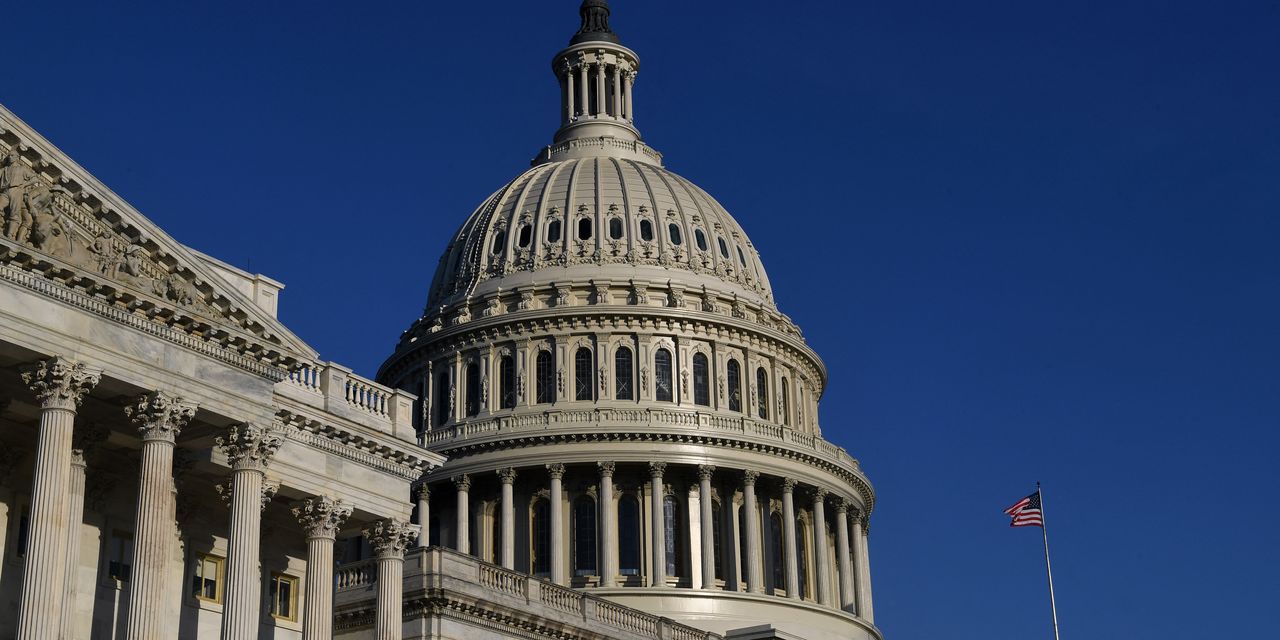
Democrats took aim at aspects of zero-commission broker Robinhood at a House Financial Services Committee hearing Monday, calling on regulators to consider banning the practice of payment for order flow and to reign in so-called gamification features of the app which critics say encourage users to trade more frequently than is financially wise.
“Zero commissions does not mean zero costs to investors, it just means zero disclosed costs. The main cost is the spread: the difference between the bid and the ask,” said Democratic Rep. Brad Sherman of California. “The gamification drives you to this, but also the illusion that Robinhood is able to create that there’s no cost to you because there’s no commission.”
The hearing convened seven expert witnesses to discuss proposals to reform U.S. stock market structure following extreme volatility in so-called meme stocks like GameStop Inc. GME, +6.50%, AMC Entertainment Holdings Inc. AMC, +1.88% and Express Inc. EXPR, +3.71%, which resulted from a short squeeze in those stocks earlier this year.
Several witnesses at the hearing argued Democrats concerns were valid. Dennis Kelleher, president and CEO of Better Markets, a financial reform advocacy organization said that Robinhood’s “primary function is not to get people to invest, but to get people to trade,” arguing that the system of payment for order flow, whereby brokers are paid by market makers for the privilege of executing their customer orders, creates a conflict of interest.
Kelleher said that features on the Robinhood app, like the use of push notifications and colorful and engaging graphics are “scientifically designed to short circuit and cut out the thoughtful process that people engage in balancing risks and rewards.”
Of particular concern to witnesses was the ease with which Robinhood allowed people to trade options, which are often much riskier than stocks. “I was quite honestly surprised at how easy it was to begin making complex options trades,” said Alexis Goldstein, senior policy analyst for Americans for Financial Reform who formerly held positions on the equity trading derivatives desks at Merrill Lynch and Deutsche Bank. “I do think there are a lot of questions in the ways that Robinhood may be enticing people who may not have the needed expertise to trade, for example, options strategies where you can lose a lot of money.”
Republicans on the committee were uniformly opposed to calls for new regulations on trading apps like Robinhood, or for calls for reform of the system of payment for order flow. “Democrats are using GameStop to justify more regulations, greater restrictions and put more costs onto businesses and everyday investors,” said Rep. Patrick McHenry of North Carolina, the ranking Republican on the panel.
Instead, he called on the Securities and Exchange Commission to reduce regulations and eliminate the accredited investor definition, which bars investors who earn less than $200,000 per year or have less than $1 million in wealth from purchasing shares of private companies.
“I concur that the accredited investor rules are outdated,” said Alan Grujic, CEO of All of Us Financial, a zero-commission trading application that competes with Robinhood. “The concept that we don’t have equal rights as citizens to invest has always troubled me.”
Advocates of the accredited investor rules say that instead of allowing more Americans to invest in companies that aren’t required to publicly disclose financial information, the SEC should make it more difficult for companies to remain private for longer.
Shares of GameStop have fared well since the committee grilled Robinhood co-CEO Vlad Tenev; Ken Griffin, founder of the hedge fund Citadel and market maker Citadel Securities; and GameStop booster Keith Gill on Feb. 18. The game retailer’s stock has risen from an intraday low of $38.50 on the day of the hearing to more than $200 as of Tuesday’s close. Shares of AMC and Express are up more than 135% an 90%, respectively, over that same time.










Add Comment